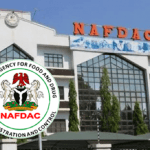On Thursday, 26 June 2025, President Bola Ahmed Tinubu, GCFR, signed into law the long-awaited Tax Reform Bills, marking a landmark moment in Nigeria’s fiscal history. These new Acts introduce a modern legal framework aimed at reshaping the tax system, strengthening tax administration, improving compliance, and stimulating economic growth.
The reform process began in August 2023 with the inauguration of the Presidential Fiscal Policy and Tax Reforms Committee, chaired by Mr. Taiwo Oyedele. The committee was mandated to review and redesign Nigeria’s fiscal framework with a focus on Fiscal Governance, Revenue Transformation, and Growth Facilitation. After extensive consultations with stakeholders and engagements across key sectors, the committee submitted four comprehensive tax reform bills to the National Assembly.
The newly enacted tax laws are:
- Nigeria Tax Act (NTA): Harmonizes existing fiscal legislation by consolidating and repealing various tax laws, including the Companies Income Tax Act and the Value Added Tax Act.
- Nigeria Tax Administration Act (NTAA): Establishes standardized tax administration procedures to improve compliance, streamline processes, and enhance revenue generation through a uniform legal and operational framework.
- Nigeria Revenue Service (Establishment) Act: Replaces the Federal Inland Revenue Service (Establishment) Act (FIRSEA) with the Nigeria Revenue Service (NRS), which is now vested with powers for assessing, collecting, and accounting for government revenue.
- Joint Revenue Board (Establishment) Act: Aims to harmonize and coordinate revenue administration, provide effective dispute resolution mechanisms, and safeguard taxpayer rights.
Commencement of the Acts:
In line with the National Tax Policy, which stipulates a minimum of 90 days before implementing tax changes, the commencement date for these Acts has been set for 1 January 2026. This six-month window provides businesses, taxpayers, and relevant stakeholders ample time to:
- Study and understand the key reforms.
- Seek clarifications on compliance requirements.
- Adjust internal processes to align with the new regime.
- Prepare adequately for implementation.
- Engage with tax authorities to understand expectations under the new framework.
Key Changes Introduced by the Reforms
Outlined below are the major changes brought by the newly signed tax laws and their implications for businesses and individual taxpayers.
Taxation of Individual Income
- Benefit-in-Kind on Accommodation:
When an employer provides premises or accommodation to an employee, the taxable rental value is now capped at a maximum of 20% of the employee’s annual gross income from employment, excluding the rental value itself. - Introduction of Rent Relief Allowance:
The Nigeria Tax Act (NTA) introduces a rent relief allowance of 20% of the annual rent paid by a taxpayer, capped at ₦500,000, whichever is lower. Taxpayers must declare and provide accurate information on rent payments to qualify for this relief. - Abolition of the Consolidated Relief Allowance (CRA):
The existing CRA of ₦200,000 or 1% of gross income (less statutory deductions), plus 20% of gross income is no longer applicable, as it is excluded from eligible deductions under Section 30 of the NTA. - Revised Personal Income Tax Rates:
The tax brackets have been expanded, with new rates ranging from 0% to 25%. Individuals with chargeable income of ₦800,000 or less (after eligible deductions) will be taxed at 0%. The new rates are:- First ₦800,000 – 0%
- Next ₦2,200,000 – 15%
- Next ₦9,000,000 – 18%
- Next ₦13,000,000 – 21%
- Next ₦25,000,000 – 23%
- Above ₦50,000,000 – 25%.
Taxation of Resident Companies
- Company Classification and Tax Rates:
Companies are now classified into Small and Other Companies.- Small Companies: Annual turnover of ₦100 million or less, with total fixed assets not exceeding ₦250 million (excluding professional service firms). CIT rate remains 0%.
- Other Companies: CIT rate remains 30%.
- Introduction of a Development Levy:
A new 4% development levy is imposed on assessable profits of all companies (except small companies and non-resident companies). This levy replaces the previous Education Tax (3%), NITDA Levy (1%), and NASENI Levy (0.25%), consolidating them into a single charge. - Abolition of Minimum Tax:
The minimum tax of 0.5% of gross turnover (less franked investment income) under Section 33 of CITA has been repealed. Companies will now pay income tax only if they make a profit in a given assessment year. - Expense Deductibility Criteria Updated:
The NTA removes the “Reasonable” and “Necessary” tests from the WREN principle (Wholly, Reasonably, Exclusively, and Necessarily incurred). Expenses are now deductible if they are wholly and exclusively incurred for profit generation. - Controlled Foreign Company (CFC) Rules Introduced:
Where a foreign company controlled by a Nigerian company does not distribute profits in a particular year, the attributable share of such undistributed profits will be deemed distributed and taxed as part of the Nigerian company’s profits. - Minimum Effective Tax Rule:
If a company’s effective tax rate falls below 15%, it must pay an additional tax to meet the 15% threshold. This applies to:- Constituent entities of multinational enterprise (MNE) groups.
- Any company with an annual turnover of ₦20 billion or more.
Additionally, if a foreign subsidiary of a Nigerian company pays less than 15% effective tax, the Nigerian parent company must pay the difference.
- Dividend Income Exemption:
Dividends received by a Nigerian company in the form of shares from the paying company are exempt from taxable profits and are not subject to withholding tax. - Deduction of Pre-Commencement Expenses:
The NTA introduces a 6-year window for pre-operational expenses. All qualifying expenses incurred within six years before the start of business operations can be deducted as though incurred on the first day of business commencement. - Foreign Currency Expenses:
Only expenses incurred in foreign currencies that are converted at the official Central Bank of Nigeria (CBN) exchange rate will be eligible for tax deductions. - Unilateral Tax Relief:
Section 120 of the NTA provides unilateral relief for Nigerian residents who have paid taxes on foreign income in another country. Taxes paid abroad may be credited against tax payable in Nigeria. - Lottery and Gaming Sector:
The NTA introduces detailed taxation provisions for the lottery and gaming industry, defining taxable activities and allowing specific industry-related expense deductions.
Taxation of Non-Resident Persons (NRPs)
Taxable Income Criteria:
Profits from trade, business, or services by an NRP are taxable in Nigeria if:
The NRP has a Permanent Establishment (PE) or Significant Economic Presence (SEP) in Nigeria.
Payments are made by Nigerian residents or PEs for services rendered from outside Nigeria.
Payments relate to insurance premiums or risks sourced from Nigeria.
In the absence of a PE or SEP, any withholding tax (WHT) deducted at source will be treated as the final tax.
Profits Attributable to PE:
PEs are deemed to share the same credit rating, equity, and loan capital as their parent company. If an NRP supplies goods or services directly to Nigeria that are similar to those offered via its PE, the related income will be attributed to the PE.
Profit Margin Rule:
If profits attributable to a PE or SEP cannot be determined or appear lower than expected, profits will be computed using the profit margin of the NRP on income derived from Nigeria.
Minimum Tax for NRPs:
Tax payable by an NRP must not be lower than the WHT suffered at source. For income not subject to WHT, a minimum tax of 4% of total income from Nigeria applies.
Value Added Tax (VAT) and Surcharges
VAT Rate: Remains at 7.5%.
Input VAT on Services and Assets: Input VAT is claimable on services and assets used for taxable supplies.
VAT as a Condition for Expense Deduction: Expenses or assets on which VAT was not paid or properly accounted for will not be deductible or qualify for capital allowances.
Tax Refunds and Credits: Excess input VAT can be credited against other tax liabilities or refunded within 30 days of a valid claim (if filed within 12 months). Refund processes will be automated.
Digital Tax Compliance: The NTAA authorizes the use of Electronic Fiscal Systems (EFS) for real-time reporting. Full implementation, including the Merchant Buyer E-invoicing solution, begins January 2026.
Fossil Fuel Surcharge: A 5% surcharge on fossil fuel products (except kerosene, LPG, CNG, and renewable energy products) will apply upon the commencement date announced by the Minister.
Chargeable Gains
Shift from Capital Gains to Chargeable Gains: The term Capital Gains is now replaced with Chargeable Gains, which are taxed as part of income at applicable tax rates.
Disposal of Shares: The exemption threshold for share disposal gains has increased from ₦100 million to ₦150 million, with taxation applying where gains exceed ₦10 million within 12 consecutive months.
Compensation for Personal Injury: Exemption thresholds have increased from ₦10 million to ₦50 million, with any amount exceeding this taxable.
Disposal of Private Residence: Exemptions apply to the sale of a personal residence (including adjoining land up to 1 acre) once in a lifetime, provided the land is not used commercially.
Personal Chattels: The exemption threshold on proceeds from personal chattel sales has been raised to ₦5 million or three times the national minimum wage.
Motor Vehicle Limitations: Only up to two privately-owned vehicles per individual per assessment year are exempted from chargeable gains.
Free Trade Zones & Export Processing Entities
Conditional Tax Exemptions: Full tax exemptions apply where 100% of sales are from exports, or where no more than 25% of sales are made to Nigeria’s customs territory.
Taxation from 2028: Profits from sales to Nigeria’s customs territory will be taxable from 1 January 2028, unless extended by presidential order.
Applicable Transaction Taxes: Services consumed by free zone entities from the customs territory will attract taxes like VAT, WHT, and Stamp Duty (except for approved activities).
Related Party Transactions: New transfer pricing rules apply to manufacturing or services outsourced by zone entities to related parties to prevent profit shifting.
Other Provisions
Tax Ombuds: Introduced to resolve disputes between taxpayers and authorities.
Renaming of Apex Tax Authority: The Federal Inland Revenue Service (FIRS) is now the Nigeria Revenue Service (NRS).
Unified Penalties: NTAA consolidates penalties across tax laws to streamline enforcement.
Tax Payment Flexibility: Taxes assessed in foreign currencies may be paid in naira at official exchange rates.
Disclosure of Tax Planning: Companies must disclose tax planning strategies; the NRS may challenge schemes deemed abusive.
Accreditation of Tax Agents: All tax agents/consultants must be accredited and certified.
Advance Ruling Mechanism: Taxpayers can request binding rulings on the tax implications of planned transactions for greater certainty.
Conclusion
The 2025 tax reforms mark a transformative shift in Nigeria’s tax framework, introducing wide-ranging changes for individuals, businesses, and regulators. Stakeholders must review the new provisions, adapt their compliance processes, and prepare ahead of the 1 January 2026 implementation.













